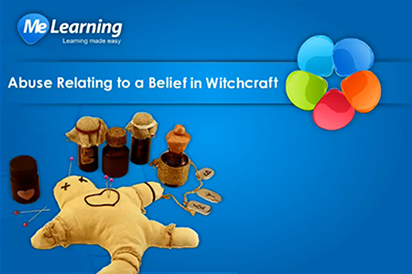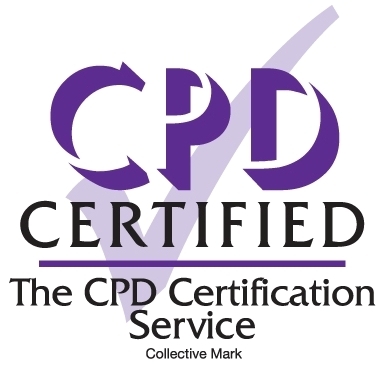


KCSP CPD online training systemYour personal learning site |
The course will help you identify children at risk of witchcraft abuse - which will, in turn, help you to protect them from their abusers.

This course contains the following modules:
| Module name | Type | Duration |
|---|---|---|
| The belief and the abuse | Online | 00:20:00 |
| Risk factors | Online | 00:25:00 |
| Challenges for the professional | Online | 00:20:00 |
The course aims to help anyone who works with children or has regular contact with children to recognise and respond to situations where abuse linked to beliefs in 'witchcraft' or 'spirit possession' has occurred or may occur.
For example, those who work in schools, healthcare, social care, faith organisations, community groups or the police.
In this course you will:
Here are some of the topics covered in all three modules:
Killed for being ‘possessed’ | Witchcraft and spirit possession | Witchcraft terms | Understanding the concepts | Beliefs in witchcraft | How the victim is perceived | Who believes n witchcraft? | Does witchcraft exist in Africa? | The need to believe | Religious culture | When beliefs become abuse | Forms of abuse | Who are the perpetrators? | Role of places of worship | The future, after intervention | Help prevent the next Victoria Climbi?? | Victoria’s basic profile | Is gender an indicator? | Is age an indicator? | Is abuse mainly found in London? | Characteristics, behaviours or disabilities | Common features about the family | Change for the worse in a family’s situation | Struggling to adapt to migration | First signs | Victoria’s carers | “Critical faculties suspended” | Common features about the type of abuse | The language and methods of the perpetrators | Physical, emotional or psychological, neglect and sexual abuse | The cause | Common features about the abuser | Important learning point | Common features about ease of movement | Summary of warning signs | Key policy and legislation | Your responsibility | Reflect on your attitudes | Who is on the front line? | Who should you contact? | What should happen? | Achieving Best Evidence | Holistic assessments | Prevention | The role of non-governmental organisations
To access any of the courses you will need to login. If you do not have an account you will need to self-register or contact us for login details.
Please click the link to download the course flyer.
This course has been independently certified as conforming to universally accepted Continuous Professional Development (CPD) guidelines.
